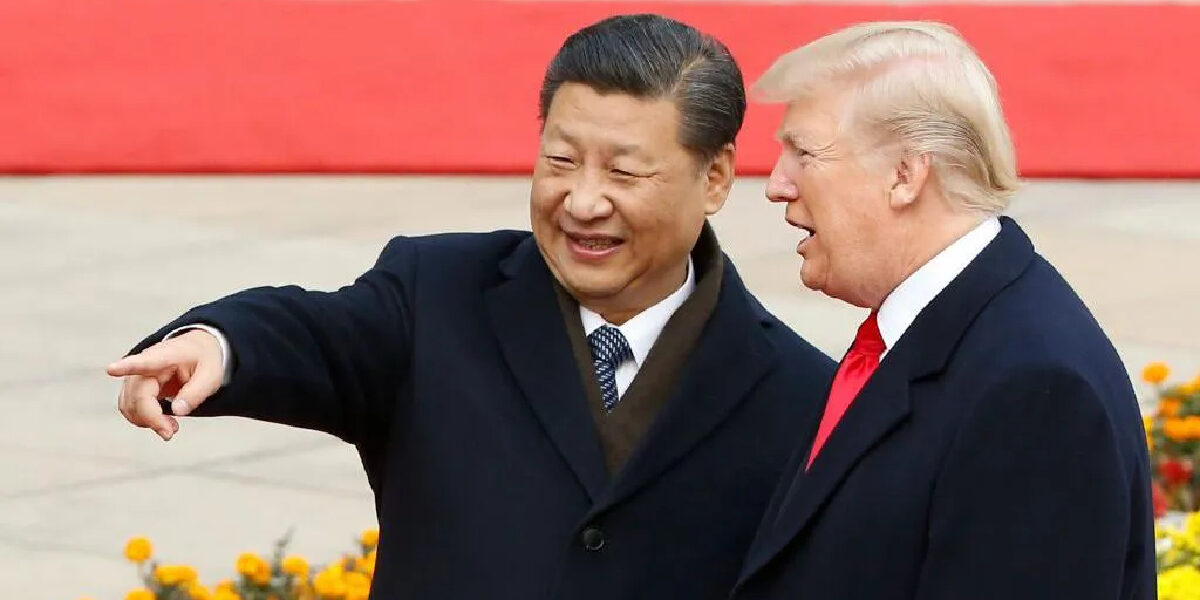U.S. President Donald Trump announced plans to impose an additional 100% tariff on all imports from China starting next month, escalating tensions between the world’s two largest economies.
In a fiery social media post, Trump said the U.S. would also introduce export controls on critical software, a move that analysts say could deepen the already fragile trade standoff.
The declaration followed Beijing’s latest decision to tighten export rules on rare earth elements, essential materials used in cars, smartphones, and advanced electronics. Trump accused China of becoming “very hostile” and attempting to hold the world “captive” by weaponizing its control over these resources.
At one point, Trump threatened to cancel a meeting with Chinese President Xi Jinping, though he later backtracked, saying he wasn’t sure “that we’re going to have it.” Still, he told reporters at the White House, “I’m going to be there regardless.”
Financial Markets React Sharply
Following Trump’s remarks, U.S. financial markets plunged, with the S&P 500 dropping 2.7%, its steepest single-day fall since April. Investors expressed concerns that renewed tariffs could spark another wave of trade disruption, hurting global supply chains.
China, which dominates rare earth production, has used its export policies as a strategic tool. The last time Beijing restricted rare earth shipments — shortly after Trump raised tariffs earlier this year — U.S. manufacturers faced serious setbacks. Automaker Ford even had to temporarily halt production due to material shortages.
Adding to the tension, Beijing launched a monopoly investigation into U.S. chipmaker Qualcomm, potentially stalling its pending acquisition of another semiconductor firm. Despite being an American company, a large portion of Qualcomm’s business relies on China, making it especially vulnerable.
China has also announced new port fees for ships linked to the U.S., further raising costs for American exporters and shipping firms.
“Some very strange things are happening in China!” Trump posted on social media. “They are becoming very hostile.”
Trade Relations on the Brink
The U.S. and China have been maintaining a fragile trade truce since May, when both sides agreed to lift some of the harsh tariffs that had brought trade nearly to a standstill. However, under current terms, U.S. goods entering China still face an extra 10% tariff, while Chinese exports to the U.S. are subject to 30% higher duties than at the start of the year.
Recent discussions between the two nations have covered TikTok, agricultural imports, semiconductors, and rare earth materials, but tensions have continued to build. The two sides were expected to meet again this month at a summit in South Korea, though the new tariff threat now casts doubt on that possibility.
Analysts: China Holding the Upper Hand
According to Jonathan Czin, a China specialist at the Brookings Institution, Xi Jinping’s recent actions are part of a calculated effort to seize control of upcoming negotiations.
“He’s trying to dictate the terms,” Czin said. “The Trump administration is now playing defense, responding to each move as it happens.”
Czin added that Beijing likely isn’t afraid of U.S. retaliation: “China believes it has a higher pain threshold. From their perspective, it was Washington that blinked first in past trade escalations.”
Meanwhile, Gracelin Baskaran, director of the Critical Minerals Security Program at the Center for Strategic and International Studies, said China’s new export restrictions pose a direct threat to U.S. defense industries.
“Nothing gets America’s attention like targeting our defense sector,” she said. “The U.S. has limited options — it must negotiate. In an age of rising geopolitical conflict, rebuilding our industrial defense base is critical.”
A Deal Still Possible — But Uncertain
While the likelihood of a Trump-Xi meeting now appears slim, Baskaran said diplomacy isn’t dead: “Negotiations are likely imminent. The question is who leads them — and where.”
China’s new export rules won’t take effect until December, leaving a narrow window for renewed talks. But with both sides showing signs of hardening positions, global markets and industries are bracing for what could become the most explosive trade showdown in years.
